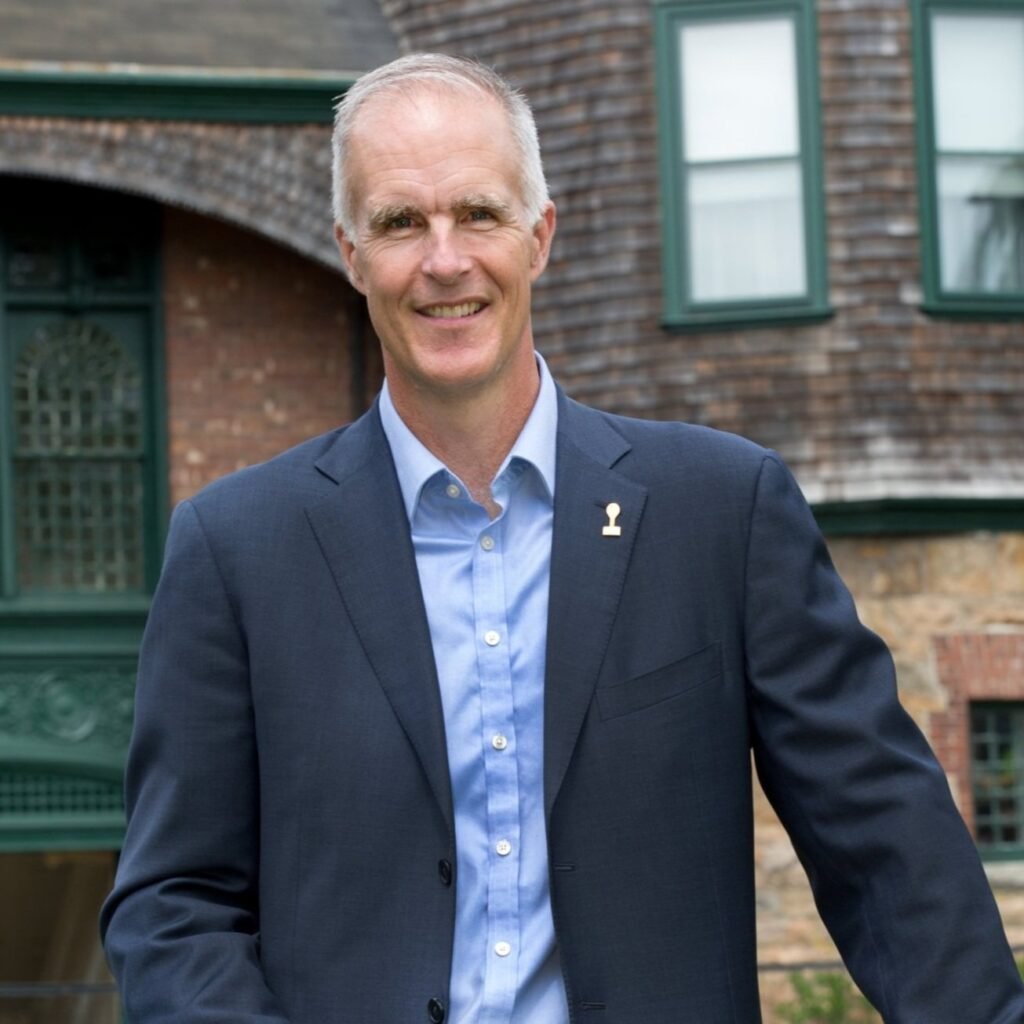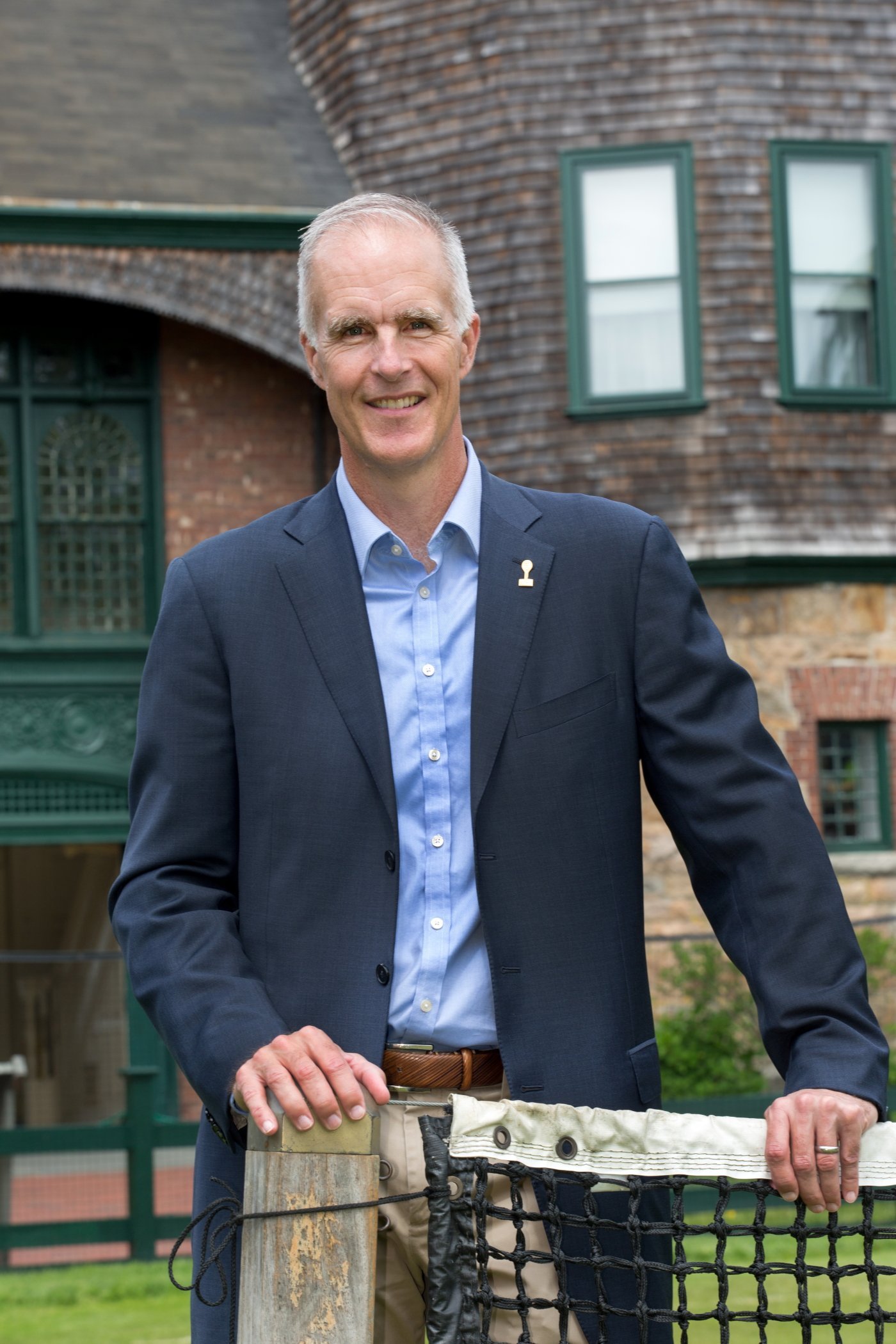Several years ago, I interviewed former tennis superstar Todd Martin in an interview originally published in Thrive Global. At the time, Todd was the CEO of the International Tennis Hall of Fame. Here is an excerpt from our interview:
Adam: What would surprise people about life as a star tennis player? What surprised you?
Todd: I think a lot of people think that professional athletes simply retire and end up on a golf course. Part of me would love to do that, but a larger part of me can’t afford to do that. I think that some people’s perspective of professional athletes is not always accurate, especially in the more niche sports like tennis.
One really surprising thing about being a professional athlete is how lonely it was initially when I first got started, but as I became more familiar and more comfortable as a professional tennis player, I realized how big of a family in the tennis world you truly have.
Adam: Who was your favorite player to play against and least favorite player to play against and why?
Todd: My favorite player to play against was Patrick Rafter, a Hall of Famer from Australia. Patrick and I were matched up well against one another. On top of that, he respected the game more than anyone else that I remember, playing with a professionalism and intensity that very few others did. My least favorite was Pete Sampras. The reason I liked playing Patrick was because of his character, it was just a fun experience no matter the outcome, and the reason I didn’t like to play Pete was because of the result. I was good friends with Pete, but he beat the dickens out of me for years.
Adam: How did you get to where you are today?
Todd: I retired in 2004 and knew that I wanted to go into coaching and had a few opportunities very soon. I coached Mardy Fish for three years, he was one of the top Americans of the next generation after me, and then I coached Novak Djokovic for a year. Two great talents, two really interesting people and great coaching opportunities for me. But it was very clear in working in those scenarios that coaching on the tour wasn’t really right for me, both from an exclusivity of relationship, the one coach-one player dynamic can be stifling and was a real challenge, and the lifestyle – traveling all the time.
The primary reason I stopped playing was because the travel was no longer worth it with a wife and young children, and so it became clear that coaching was not a realistic, appropriate place for me to be professionally. I realized that I still wanted to teach, so I started a business and ran that business with a notion of getting kids involved in tennis at an early age, helping elite athletes become better at tennis, and helping young, developing rookie professionals by giving them guidance. It was fun, I enjoyed running the business, but I didn’t enjoy all of the elements of what I aspired to do from a teaching standpoint, and this was eight years after I retired from playing. Relatively early in the life of that business, I was approached to consider becoming the CEO of the International Tennis Hall of Fame and I looked at the opportunity and realized that in running my business in Florida I was not getting to teach as much as I wanted to or the way I wanted to. Being asked to run a business that had the potential to have global impact and a massive responsibility to the sport would give me an opportunity for personal growth that dwarfed that of my own business. It was exciting for me to have the opportunity to take on the responsibility of running the Hall of Fame.
Adam: What failures, setbacks, or challenges have been most instrumental to your growth?
Todd: I look at playing tennis and think it represents daily failure. There’s a reason we get two serves in tennis. Failure is one of my pet words. I love it. I think there’s so much to learn from failure. There are a lot of momentary failures, like when something doesn’t go right one day. There hasn’t been any one great failure that has defined the progress we have made at the Hall of Fame, but my thinking on failure was further affirmed by our highly experienced and successful executive board. I’ve come to them with the idea of experimentation on things that have always been done, and asking them to give staff’s new ideas a try. The members on the executive board embrace the spirit of experimentation. They were supportive in giving these ideas a whirl, and if something failed, we would address either how to improve it or if we need to go back to the drawing board. The support for experimentation and learning from failures is wholly as informative of any of my experiences.
Adam: In your experience, what are the defining qualities of an effective leader?
Todd: An effective leader knows when to follow and the importance to listen to others opinions. They also take enough time to gather the input of the team around them. An effective leader is decisive, not afraid to disappoint people and at the same time, carries with them a level of compassion to understand where someone else is coming from in sharing an idea or carrying out a project.
Adam: How can leaders and aspiring leaders take their leadership skills to the next level?
Todd: I think it starts with the embracing of mistakes or mini-failures. One of the more challenging things to do as a leader is to put responsibility on those who are not used to having ownership of something, but if you don’t, you’ll be the only person capable of leading that organization. There has to be succession planning, a mind for what coordinators are future managers, what managers are future directors, what directors are future VPs, and so on. Unless you put the onus of owning responsibility on others, it becomes a stagnant workplace.
Adam: What are your three best tips applicable to entrepreneurs, executives, and civic leaders?
Todd: First and foremost, focus on people, and who you have doing what needs to be done. Managers must concern themselves with doing things right while the leader’s responsibility is making sure that the right things are being done. This might ring more true for me because I don’t come from a natural matriculation through the corporate world, as I went from jock to entrepreneur to CEO. There’s a lot of things I don’t know how to do. I try to rely on myself for the what and who to do things, and not so much the how, and really try to instruct and empower others on pulling it together.
Adam: What is the single best piece of advice you have ever received?
Todd: One of the first bits of advice from a mentor of mine who has resided in much larger executive roles than I’ve been in is that first and foremost, you have to know your bylaws and you have to know where the money is. Those are a couple of things I would have known but hearing it stressed by someone I respect so much was important right off the bat. The other thing is that you’re never wrong to ask for help. People love to be asked for help, either above you, below you, a peer, it doesn’t matter. Asking for help is not a sign of weakness, it’s a sign of strength.
Adam: What are your hobbies and how have they shaped you?
Todd: My personal hobbies are athletic and/or competitive by nature. I love game playing and puzzles – I love challenging myself to learn how to do something better. The beauty of that is that in times in my life I’ve done things that are time-wasting but that I was passionate about, like pool/billiards, but I was challenging myself in a different way. The discipline and the analytical thinking that goes into figuring out how to play those games or sports better also applies to the business world. It’s a lot of puzzle-solving and analytical thought processes of going through what does and doesn’t work. My hobbies of playing golf or another racquet sport called court tennis, or doing crossword puzzles or Sudoku, all help me be better at puzzle solving and solution creation.
Adam: How can anyone pay it forward?
Todd: It’s not something I always do a great job of myself, but demonstrating the perspective that what we are doing is not life or death, and challenging ourselves to identify ways to help others are good places to start when it comes to paying it forward. I think that is really difficult, especially when the world is moving so fast and we may feel somewhat overwhelmed with work. Finding a way to spend time with people who are not your direct reports, getting to know people who are maybe more than a generation removed from you is so important. Some of my favorite time is spent with the 20-somethings on our team to hear what their perspectives are. Whether it’s chit-chat, or talking about sports, or asking their opinion on certain initiatives that we’ve got going on. You have to be in their company before you can really pay it forward.









